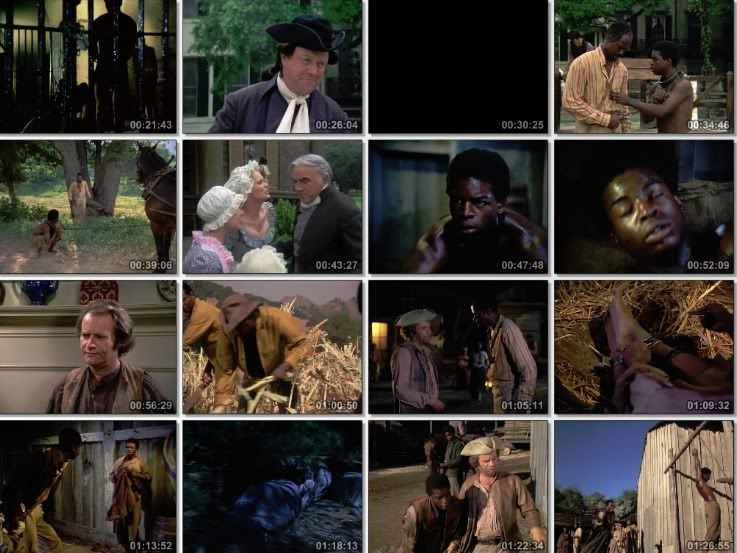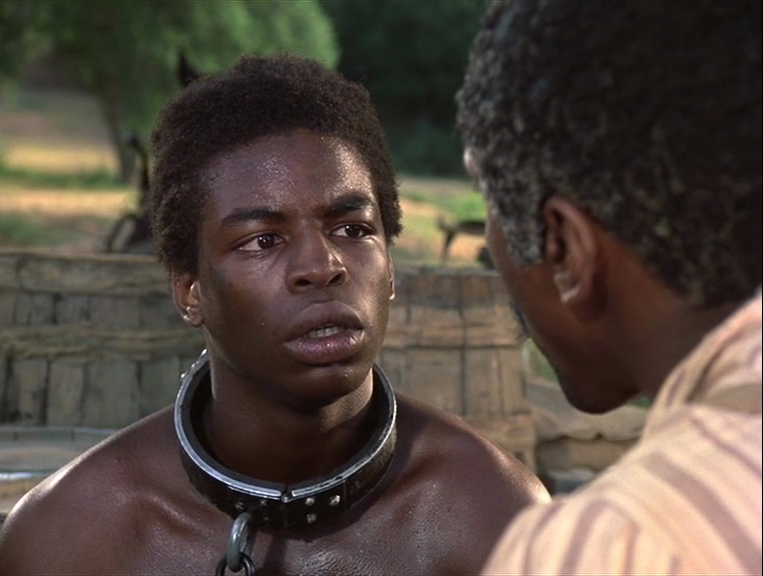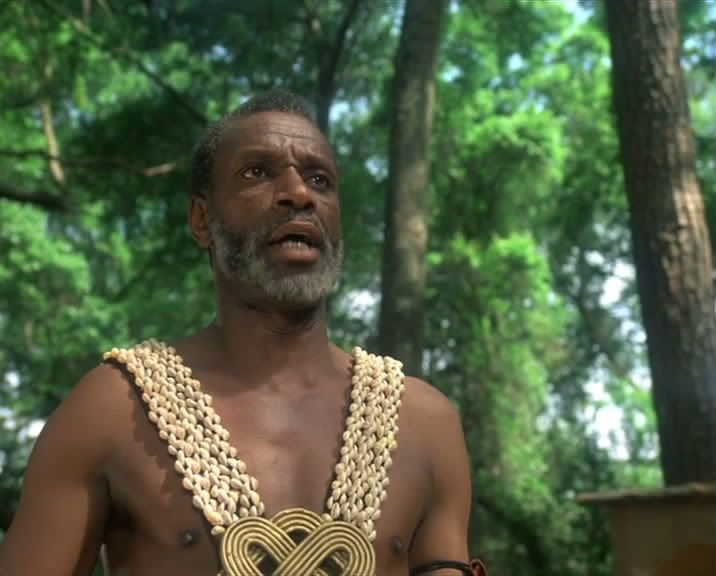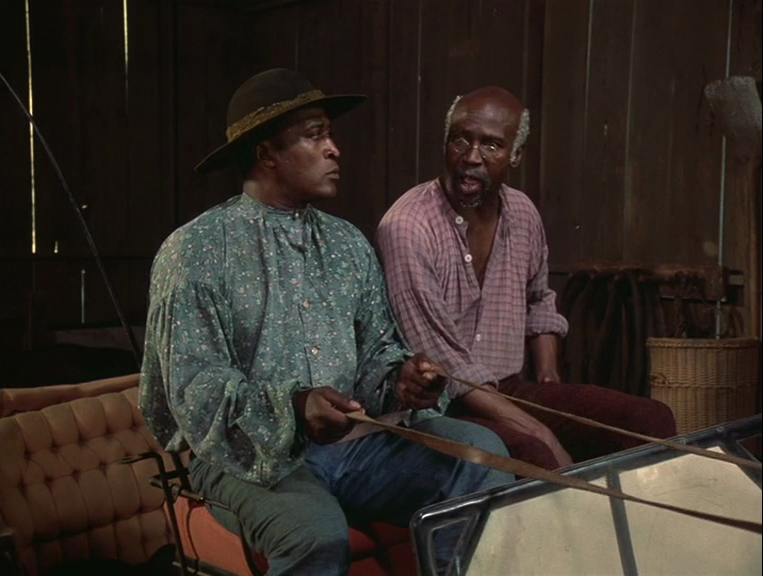





Description:
Based on Alex Haley's bestseller, the 1977 TV mini-series Roots told the harrowing story of one man's ancestors, commencing with African warrior Kunta Kinte, captured, transported to America, stripped of his dignity, his rights, and even his name. He tries but fails to escape before accepting he can never return to Africa. He m Based on Alex Haley's bestseller, the 1977 TV mini-series Roots told the harrowing story of one man's ancestors, commencing with African warrior Kunta Kinte, captured, transported to America, stripped of his dignity, his rights, and even his name. He tries but fails to escape before accepting he can never return to Africa. He marries and bears a daughter, Kizzy, who is callously sold, then raped by her new "master". However, her son, Chicken George, a resourceful dab hand with gamecocks, lives long enough to see his own children attain a liberty of sorts following the Civil War.
Roots is told in the same, accessible televisual language as The Waltons or Bonanza, yet it is never bland or evasive. It leaves no doubt as to the torment and abuse suffered by blacks, and although the series' conclusion is fictionally satisfying, for many of the black characters their only hope lies in generations yet unborn.
It is sturdy enough drama but its greatest, most revolutionary effects were social. It persuaded American audiences to regard their history from a black perspective, and to see how--against odds far more desperate than those the pilgrims faced--Africans laid claim to their status as free African-Americans. Roots was massively popular, triggering a craze for genealogy and paving the way for series like 1979's Holocaust, which similarly raised the public's awareness of the slaughter of the Jews under Hitler. Most importantly, Roots changed forever the way black people were depicted on American TV.
Part 1 Roots: The Saga of An American Family
The dramatic birth of Kunta Kinte in the village of Juffure, Gambia, West Africa, marks the opening chapter of this saga. The story follows the young Kunta Kinte from his childhood through to his teens as a goat-herder learning the cultural and religious traditions of his rural village during the mid-1700s. But what should have been a joyous occasion upon his successful return from ritual manhood training, instead results in tragedy. He and others from villages nearby are caught by slavers and are eventually transferred to a ship bound for America to be sold into bondage.
Part 2
A revolt of the captive Africans during their voyage to America fails despite the deaths of the ship's first officer and many of the ship's crew. Upon their arrival in Anapolis, Maryland after the harrowing 3 month journey across the Atlantic Ocean, the survivors are cleaned up and are taken away for auction. Kunta Kinte is eventually sold to the Reynolds plantation in Spotsylvania, Virginia, where he befriends an American-born slave named Fiddler.
Part 3
Acting as surrogate father and mentor, Fiddler takes Kunta Kinte, now named "Toby", under his wing to help him to quickly adapt to life on a plantation. However Kunta's rebellious side gets him into trouble when he decides to run away in search of a young woman that he met while back home. When he is finally caught and brought back to the plantation, he pays a terrible price for his stubbornness and desire to be free.
Part 4
Nearly a decade after his first failed attempt to run away, Kunta Kinte, having been forced to accept the name "Toby", still longs to see Fanta, and decides to run away again to find her. This time he is successful at reaching her plantation and they have a bittersweet reunion. However she vorciforously disagrees with his plans for both of them to escape to the north. Their arguments eventually catch the attention of nearby slave-catchers, Toby is caught, and once again pays a terrible price. But this time, his new caretaker and savior is someone who truly knows how to handle him and she will eventually become his wife.
Part 5
Sixteen years have passed since the birth of Toby and Belle's daughter Kizzy, who is not only well-versed in the history of her father's people, but can even read and write thanks to her owner's niece Missy Anne Reynolds. Kizzy falls in love with a young man named Noah, who like her father, was determined to run away. He eventually does with Kizzy's help, but is quickly caught and forced to reveal Kizzy's role in his escape. This prompts Dr. Reynolds to sell Kizzy to his cock-breeder neighbor as punishment.
Part 6
Nearly 20 years after leaving the Reynolds plantation, Kizzy's son by owner Tom Moore, has become a master at cock-fighting just like his father. Meanwhile Kizzy is courted by a visiting carriage driver who wants to marry her and he gives her the opportunity to briefly return to the plantation where she was born. Once there, Kizzy sadly discovers that her father Toby has died and her mother has been sold off. While visiting Toby's grave, his words haunt her, prompting her to decide to call off her marriage. But on a happier note, when she returns home, she learns that her son George has been promoted to head cock trainer and has decided to take a wife.





